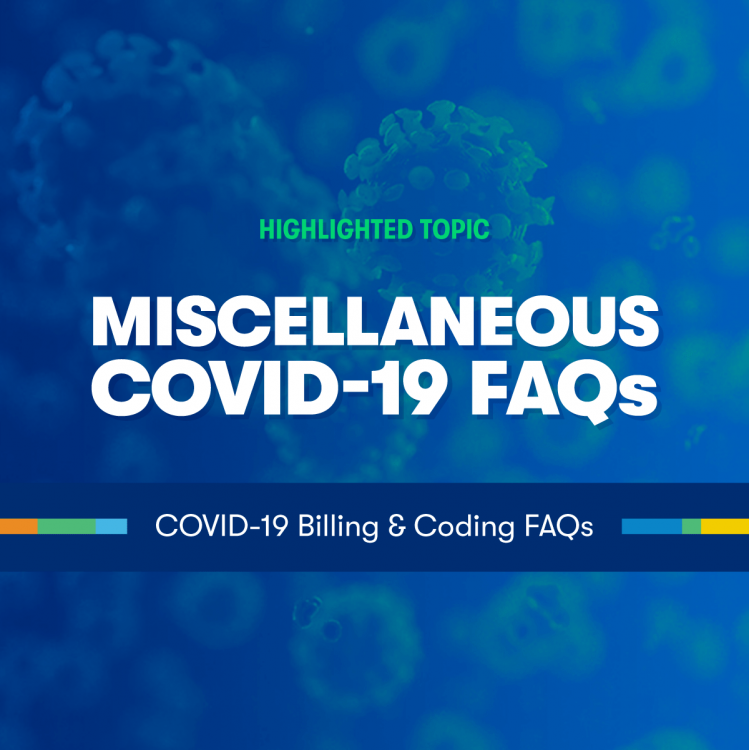We’ve collected all the most asked COVID-19 billing questions from those that use our chargemaster and knowledge solutions, and from attendees of past webinars. We then categorized them to make answers easier to find. In this article, we’ll cover FAQs that didn’t fit nicely into other categories.
 Download
Download

As coding and billing regulations continuously change, the content of this article may not be the most up-to-date information and is not intended to take the place of either the written policies or regulations. We encourage participants to review the specific regulations and other interpretive materials as necessary.
We’ve collected all the most asked COVID-19 billing questions from those that use our chargemaster and knowledge solutions, and from attendees of past webinars. We then categorized them to make answers easier to find.
In this article, we’ll cover FAQs around blanket waivers for the COVID-19 public health emergency.
The 1812(f) waiver and 1135 blanket waivers are retroactively effective to March 1, 2020.1 (04/23/2020)
1COVID-19 Emergency Declaration Blanket Waivers for Health Care Providers
The 1135 and 1812(f) blanket waivers have been issued to assist in fighting the spread of COVID-19. As such, the blanket waivers may apply to any patient, and not only those diagnosed with COVID-19. There are various nuances within the waivers to assist in determining if particular items may or may not apply. For example, the Medicare and Medicaid Programs; Policy and Regulatory Revisions in Response to the COVID-19 Public Health Emergency interim final rule with comment period expands the definition of homebound, but also states that a person who is self-quarantined does not meet this definition.1 Documentation should be available in each patient’s record for whom care was provided under one of these waivers. (04/23/2020)
It does not appear that this question has been addressed by CMS. However, this question was raised during the Open Door Forum CMS Office Hours audioconference on April 23, 2020. The guidance provided from CMS stated they would have to check and would provide information at a later date. It sounds like the issue is under consideration, but there has been no formal waiver of the requirement as yet.1 (04/23/2020)
1CMS Outreach & Education Open Door Forums, “Podcasts and Transcripts, April 16, 2020 Office Hours, page 13